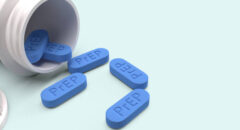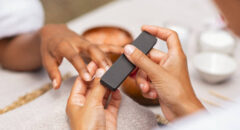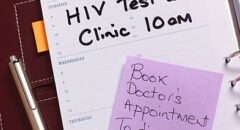
When it comes to HIV, not all acts of sex are equal. Some of them carry a greater risk of passing on the virus than others. While oral sex doesn’t have as high a risk as other types of sexual activity, that doesn’t mean the risk is completely zero. Here’s everything you need to know about getting or performing oral sex if there’s a risk of contracting HIV.
What The Statistics Say
Before getting into the numbers, it’s important to note that it’s not always easy to establish statistics for oral sex because it’s rare for people to only engage in it. Typically, they will also engage in other forms of sexual activity as well. Nevertheless, there is some data available depending on if the infected person is giving or receiving oral sex.
For example, if the non-infected person performs oral sex on the HIV-positive person’s penis, the odds of contracting the virus is about 0.04 percent. However, if the HIV-positive person performs oral sex, the risk is much lower because studies show that the saliva in the mouth generally neutralizes the virus particles.
The risks are also low typically low for cunnilingus whether or not the HIV-positive person is the one performing or receiving. This can also be said for anilingus where there is anus-to-mouth contact.
RELATED: Is Oral Sex Safer Than Vaginal Sex?
Factors That Increase Your Risk
The statistics above only hold under certain circumstances as several factors can increase your risk. Firstly, your partner’s viral load plays an essential role in the risk of infection. You’re far less likely to contract HIV if your partner’s viral load is in the undetectable range. Secondly, more studies need to be done to determine how ejaculation affects your risk. However, it’s estimated that ejaculation can lead to higher incidents of infection.
The third thing that can affect your risk is having sores or cuts in your mouth. Those can make it easier for the virus to make it into your body. Additionally, if the HIV-positive person has cuts, sores, or lesions in their mouth, that can make the salivary glands less effective at neutralizing the virus.
Finally, studies have shown that menstruation can increase the concentration of HIV in the vaginal fluids because the endometrial cells are being shed. An increase in HIV concentration can also happen to someone with a penis if they have urethritis. The inflammation leads to more shedding of infected cells.
RELATED: #BlackSexualHealthMatters: Understanding The Role of PrEP In HIV Prevention
How To Protect Yourself
While the odds of infection are typically low, that doesn’t mean you don’t have to protect yourself. Doctors advise that HIV-positive people stick to their medication regimen and testing schedule to ensure that their viral load remains low.
Those who are HIV-negative should also ask their doctor about HIV pre-exposure prophylaxis (PrEP). PrEP is a form of HIV therapy that is available as a daily pill or an injection that you get every two months. When doing this therapy, your risk of








